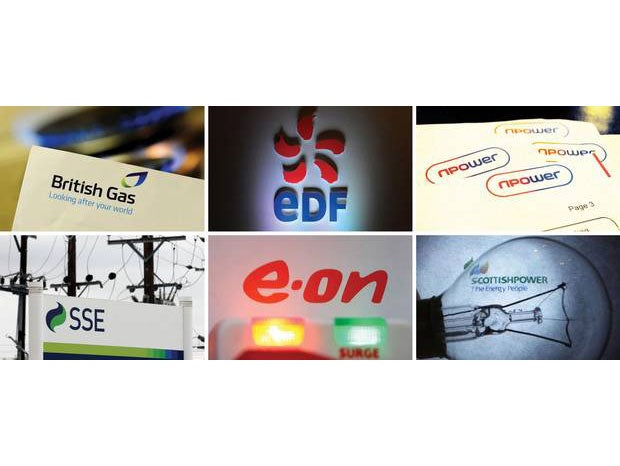Are energy companies ripping us off?
Two charts that show cost savings are not being passed on

By now it is no secret that energy companies in the UK may be overcharging customers for gas and electricity. Ofgem, the market watchdog, has even referred the energy market to the Competition and Markets Authority to be formally investigated over suspicions that prices consumers are paying are artificially high.
Profits at SSE, one of the so-called 'Big Six' energy firms that dominate the UK market, show that profits there have risen 40 per cent to £456.8 million.
How did they manage such huge profits? By putting up prices for households in November 2013, just before a year in which the wholesale price of gas fell 16.7 per cent.
"SSE would like to extend its price freeze again, or even cut prices if further costs can be taken out of energy supply, and will work with the new UK government or indeed any stakeholder to find such solutions," the company said.
But data by Ofgem, which forecasts costs and revenue in the energy sector, shows that SSE is not alone.
The amount energy companies are slicing off your energy payments is up 120 per cent in the last six years, according to Ofgen. The chart shows that energy companies are pocketing £120 from your combined gas and electricity charges every year – up from £10 in 2009.
In January, gas companies made reductions in their prices from 3.5 per cent at E.On to 5.1 per cent at Npower. But these prices were nothing compared to the fall in the cost of wholesale gas – which went down 20 per cent at the start of the year. Consumer groups say the gas companies have simply not passed these savings on.
Ofgem told The Independent that they have concerns that the market is not working for all customers, which is why they have refered it to the Competition and Markets Authority.
“Falls in wholesale energy prices have resulted in significantly better deals for consumers on fixed tariffs but the majority of consumers who are on standard variable tariffs do not appear to have benefited to the same extent. We look forward to seeing the CMA’s draft findings and recommendations in the coming weeks,” a spokesman said.
Join our commenting forum
Join thought-provoking conversations, follow other Independent readers and see their replies
Comments
Bookmark popover
Removed from bookmarks